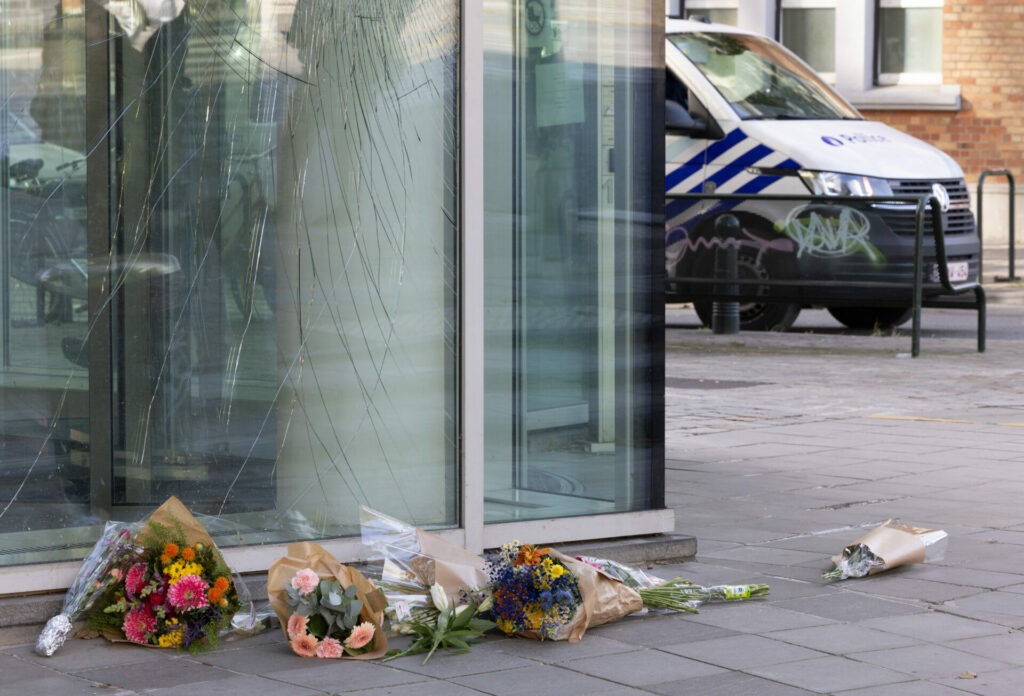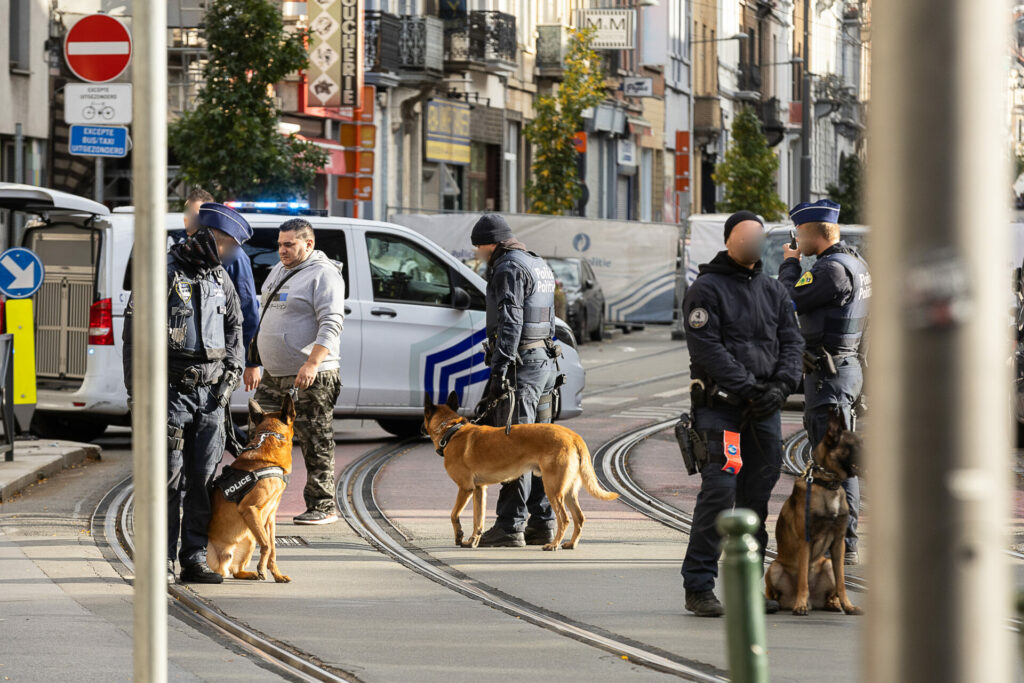Belgium's Home Affairs Committee and its Justice Committee will hold a joint meeting on Wednesday to discuss the attack in Brussels on Monday evening, which claimed the lives of two Swedish nationals.
The emergency meeting discussion, due to start at 14:30, will include Minister of the Interior Annelies Verlinden, Minister of Justice Vincent Van Quickenborne and Secretary of State for Asylum and Migration Nicole de Moor. Prime Minister Alexander De Croo will also be present.
Already on Tuesday morning, the Home Affairs Committee met in the immediate aftermath of the incident. Many political groups questioned how the attack could have happened. The 45-year-old Tunisian national Abdeslam Lassoued was known to the police but was not on the list of potentially dangerous people held by OCAM, the national body in charge of assessing terror threats.
He was staying in Belgium despite having had his asylum application rejected.

Bernard Clerfayt, Minister of the Government of the Brussels-Capital Region. Credit: Belga
Brussels Minister for Employment Bernard Clerfayt on Tuesday denounced serious failings leading to Monday’s terror attack in Brussels. In a post on X (formerly Twitter), the minister was clear in his criticism: "The presence of the terrorist in Belgium and in Schaerbeek was known to the Foreigner’s Office but was never communicated to the municipality, nor to its local police department." When registering at a new address, local police should be notified in order to verify first-hand that the person lives at the reported address.
The suspect first applied for asylum in Belgium in 2019, with his application being rejected one year later. He had been residing irregularly in Belgium ever since.
“When he entered Belgium, he submitted an asylum application to the Foreigners’ Office, in which he declared an address. It seems that no attempt was made to verify this residence or whether he was alone or accompanied," Clerfayt wrote. He went on to claim that in 2021, the Foreigners’ Office removed Lassoued’s address from its records, effectively leaving the suspect untraceable.
When Lassoued’s asylum application was refused and an order for him to leave Belgium territory was issued in March 2021, it could not be delivered without a known address.
Missed opportunities?
Belgium's methods of monitoring terror threats were scrutinised by opposition parties. "What does it mean to be on the radar?" asked Yngvild Ingels (N-VA). The DéFI and PTB parties were critical that such a man could circulate in the country. "All the signals and alarms were present", said Nabil Boukili (PTB).
The fact that the suspect had stayed irregularly in Belgium "highlights a sensitive point in our return policy", said Tim Vandenput (Open VLD). "People who are in our country illegally should not be here and we should do everything we can to remove them."
Some of those present highlighted recommendations made in the wake of the terror attacks of 22 March 2016. Denis Ducarme (MR) suggested that 30% of the recommendations have not yet been implemented. But other MPs called for calm and stressed the need to analyse the events leading up to the attack in full. Even if all the mentioned recommendations had been implemented it is not clear that Monday's attack could have been prevented.

Flowers on the site of Monday's attack, the entrance to an office building, in Brussels' Northern quarter. Credit: Belga / Benoit Doppagne
Some media outlets have reported that Lassoued was previously ejected from his local mosque for extremism. "He came to cause trouble at a mosque. If a dangerous person does that, the competent state security services should know about it," Clerfayt lamented.
However, in a press briefing on Tuesday morning Justice Minister Vincent Van Quickenborne claimed that there were "no concrete indications of radicalisation".
De Croo told RTL that he would demand answers as to why Lassoued was allowed to remain in Belgium unimpeded, though stressed that he was not on the terror list.
"There are failures in the registration of asylum seekers, in the transmission of information to local authorities and in monitoring of dangerous people by the Foreigners’ Office. These failures are all the responsibility of the Federal state services."

